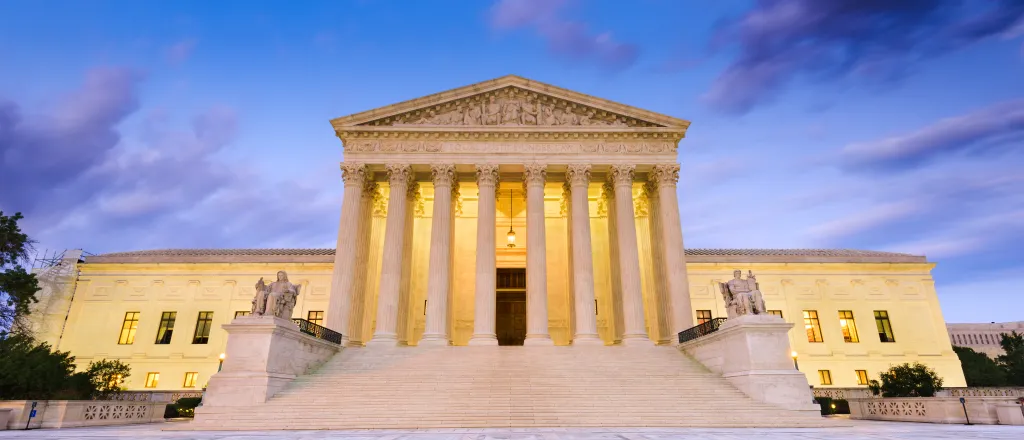
33 Attorneys General urging Supreme Court to uphold whistleblower law
© iStock - SeanPavonePhoto
(The Center Square) — Connecticut Attorney General William Tong is leading 33 states attorneys general, including Phil Weiser in Colorado, in urging the U.S. Supreme Court to overturn a pair of lower court rulings that could have broad implications for whistleblowers, and the government's ability to go after public fraud.
In a 15-page legal brief, Tong and the other AGs are calling on justices to uphold a pair of federal whistleblower lawsuits accusing pharmacy operators of overbilling government health insurance programs for prescription drugs.
At issue is whether private companies can shield themselves from fraud lawsuits by claiming an "objectively reasonable" interpretation of the federal False Claims Act, which allows citizens to file lawsuits on behalf of the government.
Lawsuits filed by whistleblowers against Safeway Inc. and SuperValu Inc., accused the retail pharmacy chains of defrauding Medicare and Medicaid by billing them using "artificially high" pricing schemes, while charging most consumers lower prices for out-of-pocket costs through discount programs.
But in a 2-1 opinion, the Seventh U.S. Circuit Court of Appeals in Chicago sided with the companies, saying they were acting under a "reasonable" interpretation of the law when they billed the government higher prices than those charged to uninsured consumers.
In its April ruling, the appeals court agreed the companies had overcharged the government, but ruled they can't be held responsible for fraud because their billing practices were supported by an "objectively reasonable" interpretation of the whistleblower law.
The whistleblowers appealed the ruling to the Supreme Court, which agreed to combine the cases and review the lower court rulings.
In their legal brief, Tong and other AGs argue the Seventh Circuit's ruling "turns the law on its head" and puts states at risk of losing Medicaid and Medicare funds to fraud if they don't issue adequate guidance to companies operating under their jurisdiction.
"Rather than encouraging providers to seek available clarification about the legality of their practices, the Seventh Circuit’s rule rewards providers that put on blinders, take the public’s money, and ask questions (or seek forgiveness) later," the AGs wrote in the legal brief.
In a statement, Tong said the lower court’s rulings "gut the essence" of the False Claims Act and will "jeopardize the integrity of state Medicaid operations."
He said under the Connecticut False Claims Act — which was modeled on the federal law, the state has recovered over $181 million in misspent public healthcare dollars since 2009, when it went into effect.
"Having a strong interpretation of the False Claims Act is vital for the protection of taxpayer dollars, which is why my fellow attorneys general and I are strongly urging the Supreme Court to right this wrong," he said.
Joining Tong are AGs from Alaska, California, Colorado, Delaware, District of Columbia, Georgia, Hawaii, Illinois, Indiana, Iowa, Kansas, Maine, Maryland, Massachusetts, Michigan, Minnesota, Nevada, New Hampshire, New Jersey, New Mexico, New York, North Carolina, North Dakota, Oklahoma, Oregon, Pennsylvania, Rhode Island, South Dakota, Tennessee, Vermont, Washington and Wisconsin.

















